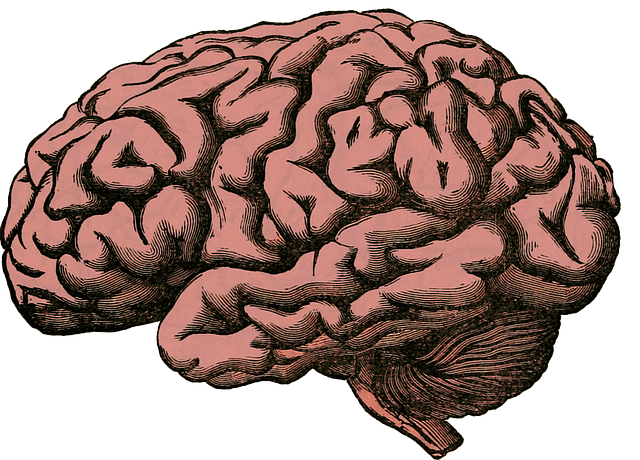Denver dissociative disorder therapy offers a specialized approach to managing chronic stress and its mental/physical health impacts, targeting conditions like cardiovascular disease, depression, and digestive disorders. Through mindfulness exercises, cognitive reframing, and burnout prevention strategies, this program equips individuals with healthier coping mechanisms for trauma-driven dissociation. By integrating self-care practices into their routines, clients can enhance emotional regulation, reduce anxiety, and improve overall mental wellness.
In today’s fast-paced world, stress has become an all-too-common companion. Understanding its profound impact on mental and physical health is crucial. This article explores effective stress reduction methods, from the unique perspective of Denver Dissociative Disorder Therapy to practical techniques for daily life. We delve into strategies that integrate self-care into routines, offering a holistic approach to combat stress and foster well-being. Discover how these methods can transform your life, ensuring resilience against life’s challenges.
- Understanding Stress and Its Impact
- Denver Dissociative Disorder Therapy: A Unique Approach
- Techniques for Effective Stress Reduction
- Integrating Self-Care into Daily Routine
Understanding Stress and Its Impact

Stress is a natural response to various life challenges and can be beneficial in small doses, but prolonged or chronic stress can have detrimental effects on both mental and physical health. It’s essential to understand that stress isn’t just a feeling; it triggers chemical changes in the body, affecting neurotransmitters and hormones. This physiological response can lead to increased heart rate, elevated blood pressure, and heightened anxiety levels, among other symptoms. Over time, chronic stress may contribute to serious health issues such as cardiovascular disease, depression, and digestive disorders, making it a significant concern in modern life.
In Denver, dissociative disorder therapy has emerged as a valuable approach to addressing the profound impact of stress. This form of specialized therapy is designed to help individuals manage dissociation—a common coping mechanism for those who have experienced trauma or chronic stress. By incorporating compassion cultivation practices and emotional well-being promotion techniques, therapists guide clients towards healthier ways of navigating stressful situations. Such methods can include mindfulness exercises, cognitive reframing, and crisis intervention guidance tailored to individual needs.
Denver Dissociative Disorder Therapy: A Unique Approach

Denver Dissociative Disorder Therapy offers a unique and specialized approach to stress reduction, focusing on individuals dealing with dissociative disorders or trauma-related issues. This therapeutic method is designed to help clients navigate their internal experiences, where traditional therapy techniques might not fully address the complexity of their conditions. By utilizing innovative communication strategies tailored for dissociation, therapists create a safe space for patients to explore and process traumatic memories and emotions.
The program incorporates various elements from Mental Health Education Programs Design, emphasizing self-awareness and coping mechanisms. Through this comprehensive approach, Denver Dissociative Disorder Therapy aims to empower individuals to manage their stress, anxiety, and potential burnout, which is especially relevant for healthcare providers implementing Burnout Prevention Strategies for Healthcare Providers.
Techniques for Effective Stress Reduction

Stress reduction is a vital component of maintaining good mental health and overall well-being. For individuals dealing with dissociative disorders or seeking to enhance their coping mechanisms, Denver dissociative disorder therapy offers specialized approaches. Through tailored therapy sessions, clients can learn powerful techniques to manage stress effectively. One such method involves mindfulness practices, which encourage individuals to stay present and focused on the here and now, thereby reducing anxiety-inducing thoughts about the past or future.
In addition to these practices, developing coping skills is essential for stress reduction. Denver dissociative disorder therapy programs often incorporate cognitive-behavioral techniques to help clients identify and challenge negative thought patterns. This process enables them to respond to stressful situations more adaptively, fostering better mental resilience. Moreover, mental wellness coaching programs can provide ongoing support, guiding individuals in applying these coping strategies in their daily lives, ultimately leading to improved depression prevention and enhanced overall mental wellness.
Integrating Self-Care into Daily Routine

In today’s fast-paced world, integrating self-care into daily routines is more crucial than ever for maintaining mental and emotional well-being, especially for those navigating conditions like dissociative disorder in Denver. Self-care isn’t just a luxury; it’s an essential tool for managing stress and preventing burnout. Simple practices such as mindful meditation, regular exercise, and adequate sleep can significantly enhance one’s ability to cope with life’s challenges. These activities help to regulate emotions, promote relaxation, and foster emotional resilience, which are vital components in the journey towards recovery from dissociative disorders.
For individuals seeking trauma support services or striving for better emotional regulation, establishing consistent self-care routines can be transformative. It allows them to take control of their mental health and cultivate a sense of inner peace amidst life’s storms. By prioritizing self-care, one can create a buffer against the negative impacts of stress, ultimately leading to improved overall well-being and quality of life. Burnout prevention starts with these small yet powerful acts of self-preservation.
Stress reduction is a multifaceted journey, and as this article has explored, understanding its root causes is key. Techniques such as Denver Dissociative Disorder Therapy offer innovative approaches to managing stress by addressing its underlying mechanisms. By integrating self-care practices into daily routines, individuals can effectively navigate life’s challenges and foster resilience. Remember that finding personalized strategies for stress reduction is essential for overall well-being, allowing one to live a more balanced and fulfilling life.














